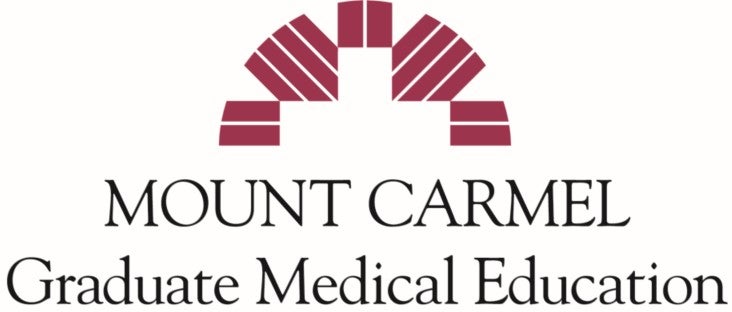Curriculum & Schedule
At Mount Carmel, our Internal Medicine Residency curriculum is designed to provide a balanced, immersive, and customizable training experience that prepares residents for any career path in internal medicine.
X+Y Scheduling Model
We follow an X+Y schedule—four weeks of inpatient or elective rotations (X) followed by one dedicated week of outpatient clinic (Y). This structure ensures:
- Uninterrupted focus in both inpatient and outpatient settings
- Consistent breaks to support wellness and continuity
- Protected time for ambulatory education, research, and personal needs
Sample X + Y Schedule
| X | Y | X | Y | X | |||||||
|---|---|---|---|---|---|---|---|---|---|---|---|
| Week 1 | Week 2 | Week 3 | Week 4 | Week 5 | Week 6 | Week 7 | Week 8 | Week 9 | Week 10 | Week 11 | Week 12 |
| Elective | Elective | Outpatient | Inpatient | Inpatient | Inpatient | Inpatient | Outpatient | ICU | ICU | ICU | ICU |
Week by Week Breakdown
First Year Residents
| Inpatient Medicine | 16 weeks |
| ICU | 8 weeks |
| Night Medicine | 4 weeks |
| Ambulatory Medicine | 10 weeks |
| Research | ½ Day each ambulatory week |
| Elective | 14 weeks |
Second & Third Year Residents
| Inpatient Medicine | 14 weeks |
| ICU | 6 weeks |
| Night Medicine | 4 weeks |
| Ambulatory Medicine | 10 weeks |
| Research | ½ Day each ambulatory week |
| Electives | 18 weeks |
Our curriculum offers significant flexibility, allowing residents to tailor their experience to match their career goals. Whether you're pursuing fellowship, hospitalist medicine, or primary care, you'll have access to:
- A wide range of elective rotations across inpatient and outpatient specialties
- Protected half-days during ambulatory weeks for research and wellness
- Opportunities to explore subspecialties, community medicine, and academic interests
Inpatient & Outpatient Electives
- Addiction Medicine
- Allergy & Immunology
- Cardiology
- Dermatology
- Emergency Medicine
- Endocrinology
- ENT
- Gastroenterology
- Geriatrics
- Hematology/Oncology
- Hospitalist
- Infectious Disease
- Neurology
- Neuropsychology
- Nephrology
- OB/Women’s Health
- Ophthalmology
- Orthopedic Surgery
- Palliative Care & Hospice
- Primary Care
- Pulmonary
- Radiation Oncology
- Rheumatology
Street Medicine
Our inpatient training spans multiple hospital sites, offering residents exposure to a wide range of clinical environments and patient populations. Each rotation is designed to promote progressive autonomy, teamwork, and strong clinical foundations.
Residents work in structured teams under faculty supervision, managing a variety of cases with a patient cap of 14 to support safe, effective learning. The rotation emphasizes continuity of care, communication, and collaborative decision-making.
Residents care for critically ill patients in a high-acuity setting, gaining experience in advanced clinical management, procedures, and interdisciplinary coordination.
This rotation focuses on coordinated inpatient care within a multidisciplinary framework. Residents refine their efficiency, communication, and systems-based practice.
Upper-level residents participate in a dedicated admitting service, focusing on triage, initial evaluation, and diagnostic reasoning in a fast-paced environment.
Residents rotate on a night team responsible for overnight admissions and cross-coverage. This experience promotes independent decision-making and supports balanced scheduling.
Our Internal Medicine residents participate in a robust outpatient experience based at our Grove City clinic, which serves a diverse and often underserved patient population. This setting offers residents the opportunity to make a meaningful impact on the community while developing strong skills in continuity care and outpatient medicine.
During ambulatory weeks, residents focus on:
- Building long-term doctor-patient relationships
- Managing a wide range of outpatient conditions across internal medicine and subspecialties
- Learning systems-based practice, including documentation, billing, and insurance navigation
This experience not only strengthens clinical skills but also reinforces our mission of compassionate, community-centered care.
